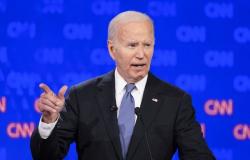
The Ministry of Health has sent a letter to those responsible for the different Health Departments recalling the legal framework that regulates the training of specialists in Health Sciences, where it clarifies that the MIR of Family Medicine can take charge of the consultation “without presence of tutor”. “In the specific case of Family and Community Medicine, the training program establishes that fourth-year residents must be able to independently and completely take charge of a consultation, without the presence of the tutor, although with the possibility of resorting to him in case of doubt or in complex situations,” is stated in the document. This letter includes the regulations of the Specialized Health Training (FSE) in relation to the supervision and autonomy of residents in their last year of training, as requested by the Autonomous Communities in the previous Interterritorial Council of the National Health System (CISNS). . This CISNS was held in response to the concern of the CCAA about the coverage of places during the summer period, given the completion of the residency of many professionals at the end of September as a result of having started their training in the first year of the Covid pandemic. -19. As Health recalls, Law 44/2003, of November 21, on the organization of health professions (LOPS), and Royal Decree 183/2008, which develops it, establish the basic principles that govern specialized health training in Spain. These principles include the progressive assumption of responsibilities by residents and a decreasing level of supervision as they advance in their training. The Ministry has also recalled the regulations on external rotations, which can be authorized by the CCAA as long as certain requirements are met, such as being proposed by the tutor and having the approval of the teaching commission of the destination center. These should preferably be carried out in accredited teaching centers and, in addition, the management of the center of origin must “expressly” commit to continuing to pay the resident their entire salaries. Regarding residents’ salaries, the Ministry has clarified that the CCAA are responsible for establishing salary supplements, within the framework of the special residency employment relationship. It is also remembered that the duration of the residency will be that established in the training program of the specialty and will be indicated in accordance with the provisions, where appropriate, of the community regulations. Likewise, Health insists that residents “have the duty and the right” to complete their training itinerary, so the centers and their managers must facilitate compliance with the training itineraries of each resident and the supervised integration of these into the assistance, teaching and research activities carried out in said units.





